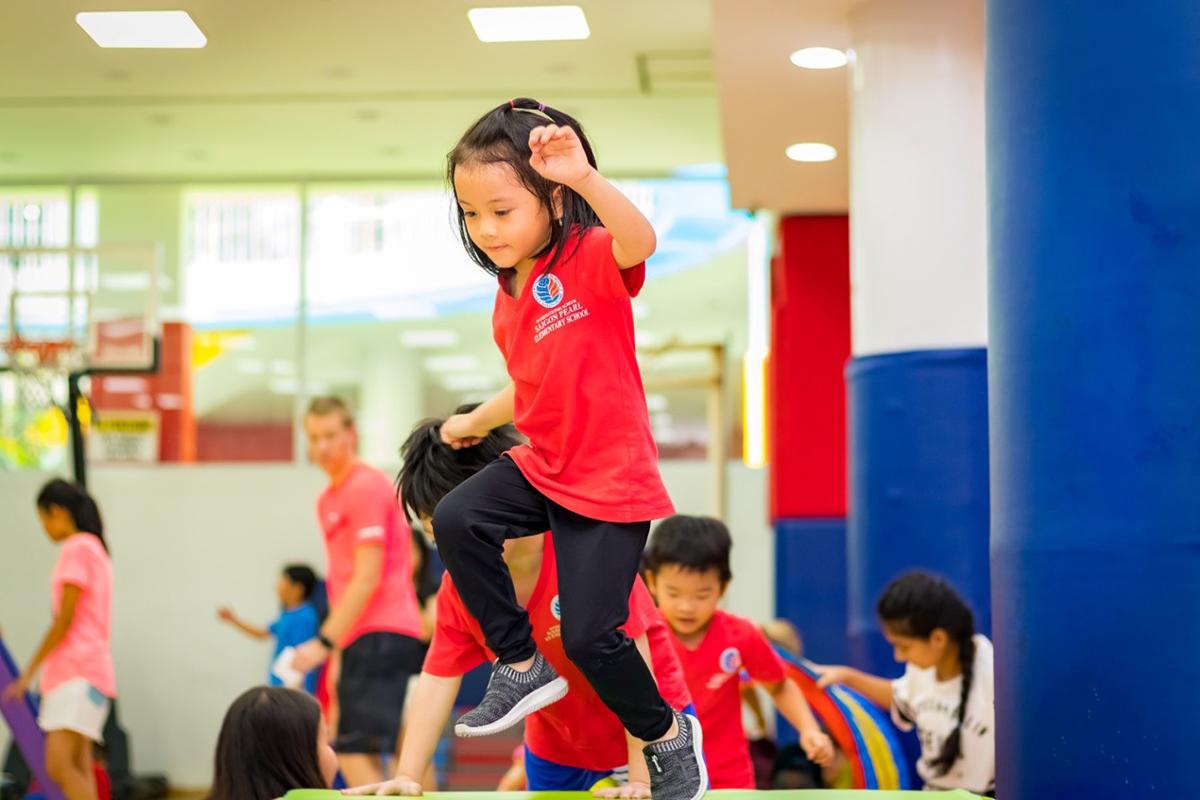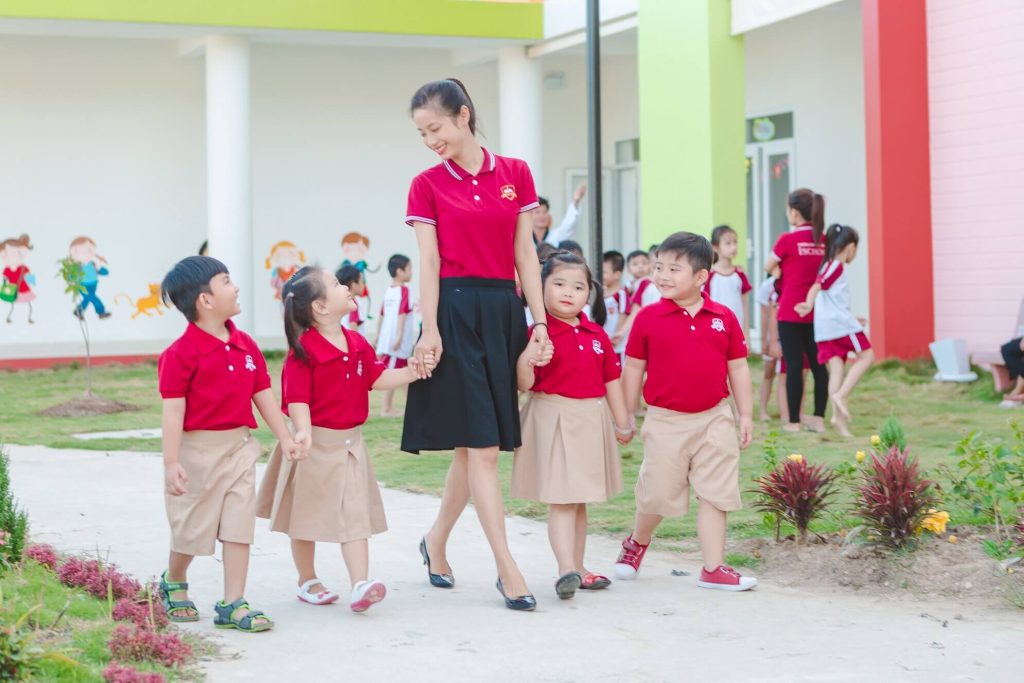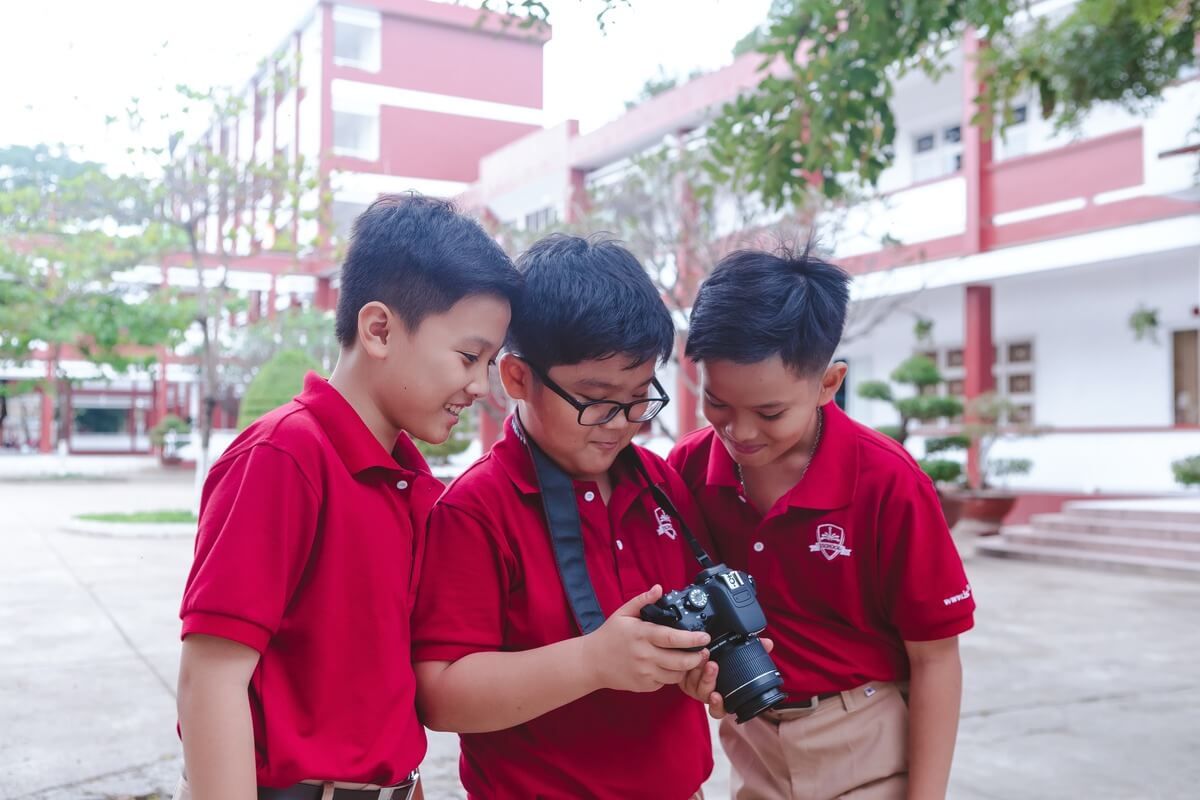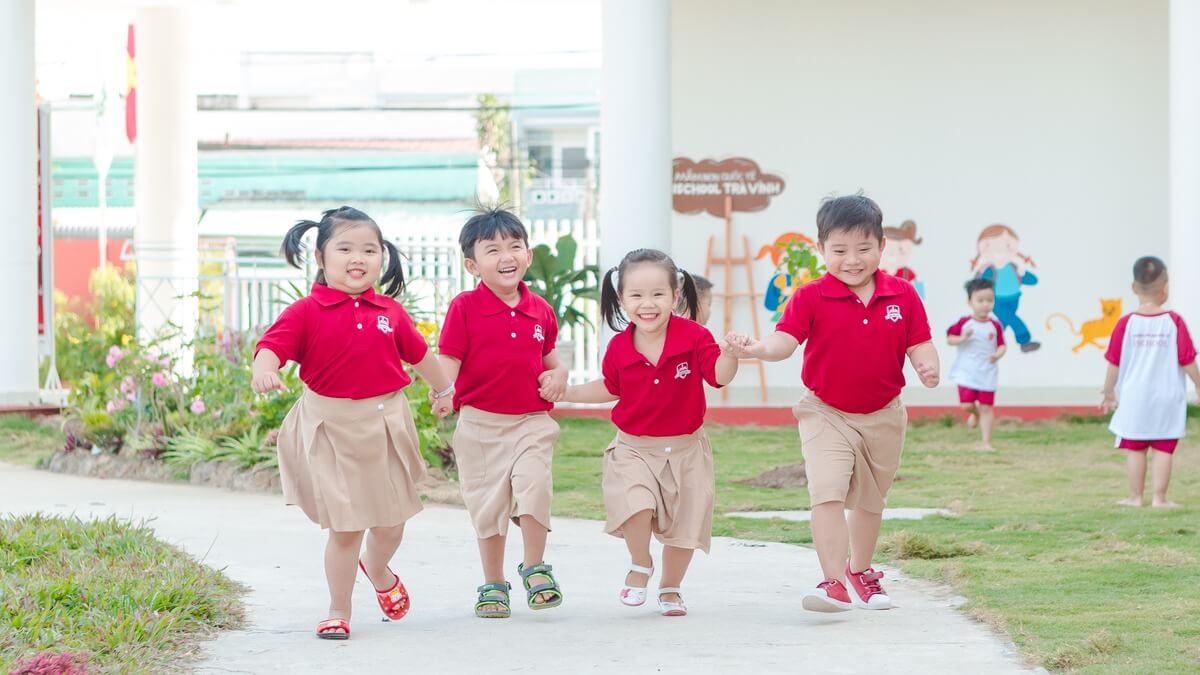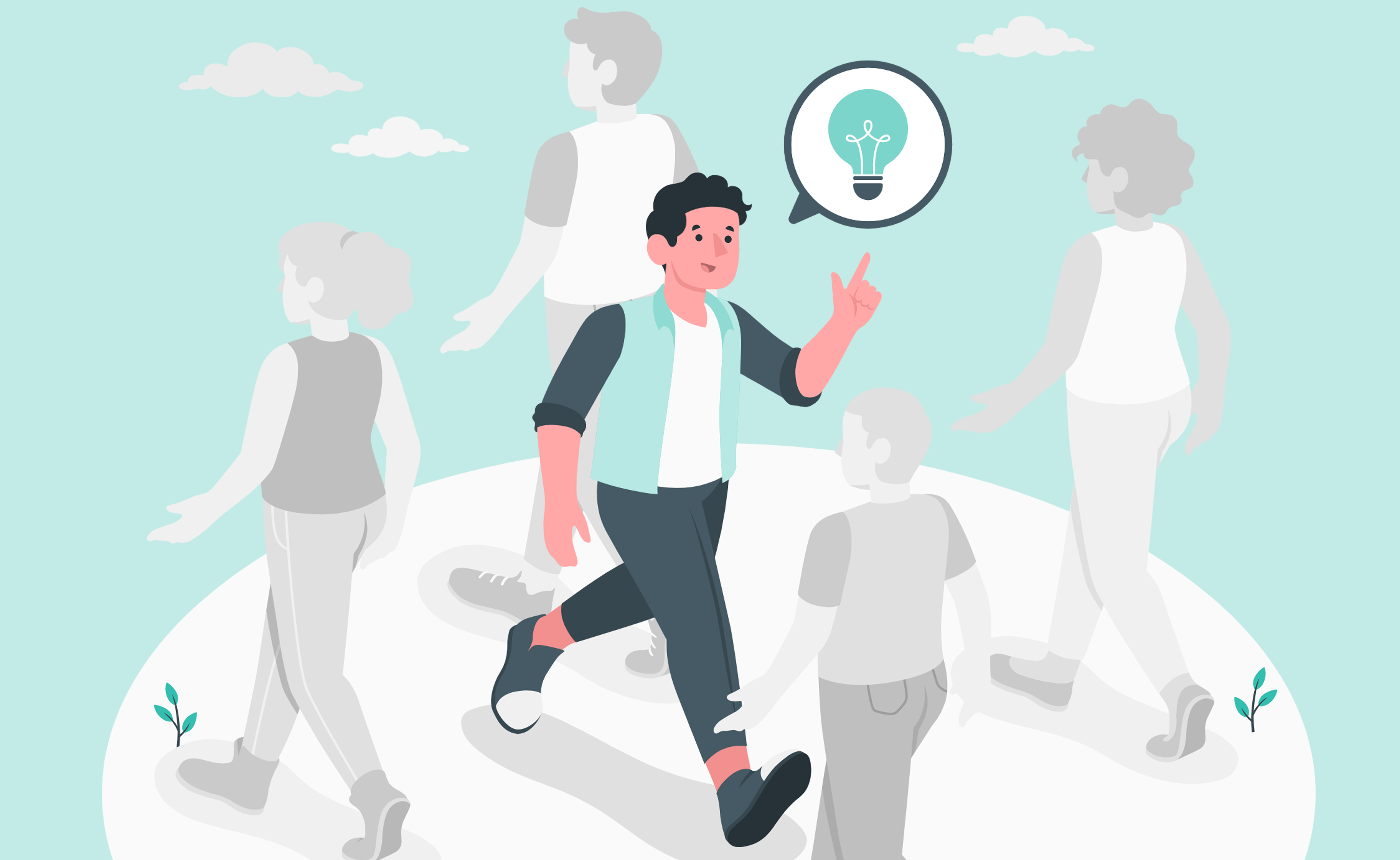-
Currently, the Government is planning to help preschool and primary school children back to school. Besides the epidemic prevention measures from the school, the most important factor in ensuring safety comes from the children’s own consciousness. In this article, ISSP, the high quality and credible international school in Ho Chi Minh City, shares some useful ways that parents and schools can refer to to educate children to build good awareness and habits of epidemic prevention. Please read the following article from TheTips.
Establishing healthy habits
For a long time, healthy habits such as wearing a mask when going out, regularly washing hands and disinfecting, keeping a safe distance when going to crowded places, etc. have become a part of people’s lives, and that’s what the most basic conditions for each person to keep themselves safe and healthy. Children are no exception to that rule. The problem is how do children seriously do these things even without adult supervision.
Preschool and primary school children do not fully understand the dangers of the Covid-19 epidemic, but by observing, children can see the actions of adults and imitate them. Sharing about this issue, Ms. Kristin Wegner – School Counselor cum Designated Safeguarding Lead at International School Saigon Pearl (ISSP) in Binh Thanh District, Ho Chi Minh City said: “Parents and teachers should regularly talk to children about the need for these healthy habits through daily conversations as well as in class. When a topic is repeated many times over a long period of time and along with that is the serious implementation of the people close to them, children will actively imitate even without adult supervision”.
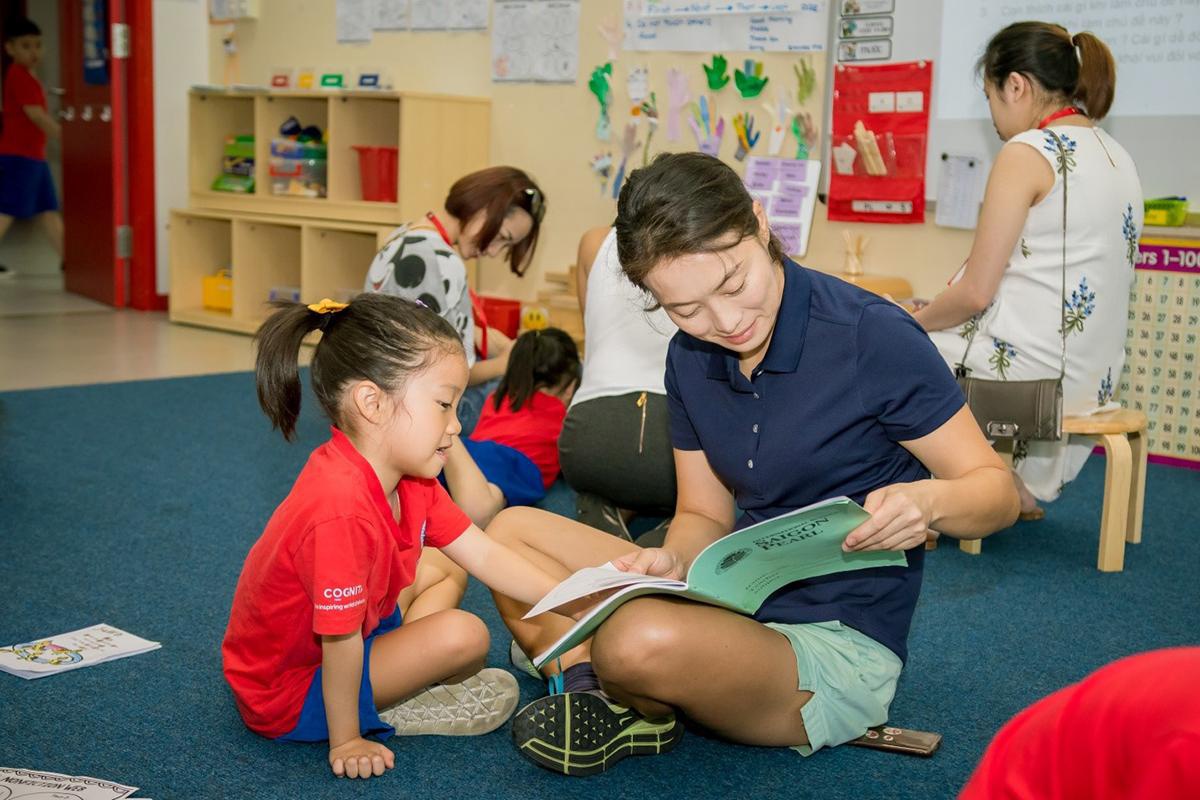
Parents and teachers should regularly talk to their children about the need for healthy habits (Source: Internet) “Those healthy lifelong habits, in a pandemic or not, can help children stay healthy in many situations. When children consider these things as important as changing clothes and bathing every day, then parents can reduce anxiety when sending children back to school in person,” Kristin explained.
Simplifying concepts
People are learning to live with the pandemic. So besides establishing healthy habits every day, children also need to be provided with basic knowledge about the epidemic and how to protect themselves while in home as well as when going back to school. If secondary school students and above can actively absorb knowledge from many different sources of information, for preschool and primary school children, the main communication channel of information is from teachers and parents.
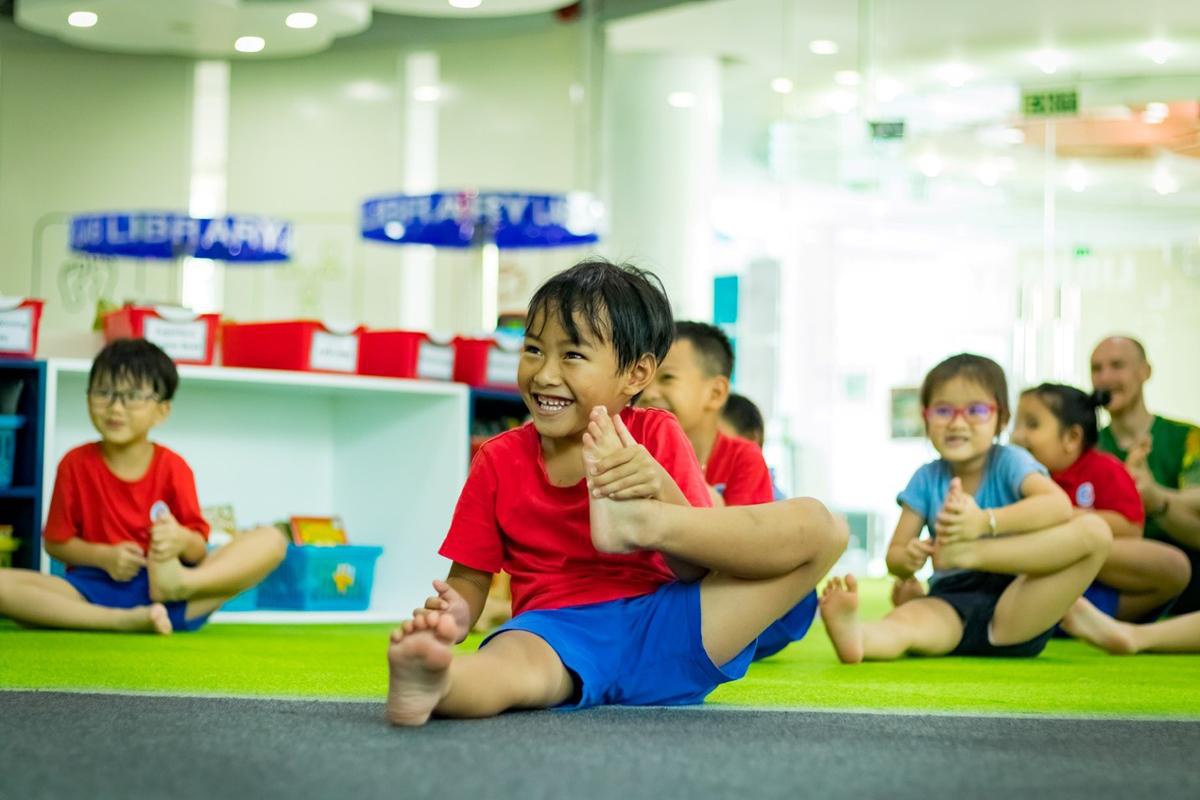
Simplifying concepts and integrating knowledge through games for children (Source: Internet) At an older age – primary school, children will acquire knowledge about how to keep themselves safe during the Covid-19 pandemic through solving real-life situations. For example, parents can ask a child some questions like how will they behave after a man sneezes but he does not wash his hands and shakes hands with them; or assume viruses are like glitter, spray glitter on children’s hands and have them wash their hands with soap and water in turn to see which is cleaner, then explain to them the importance of washing soapy hands, etc.
Experts also emphasize that children at this age are often more interested in lessons when encouraged with praise or deserved rewards when they do it right.
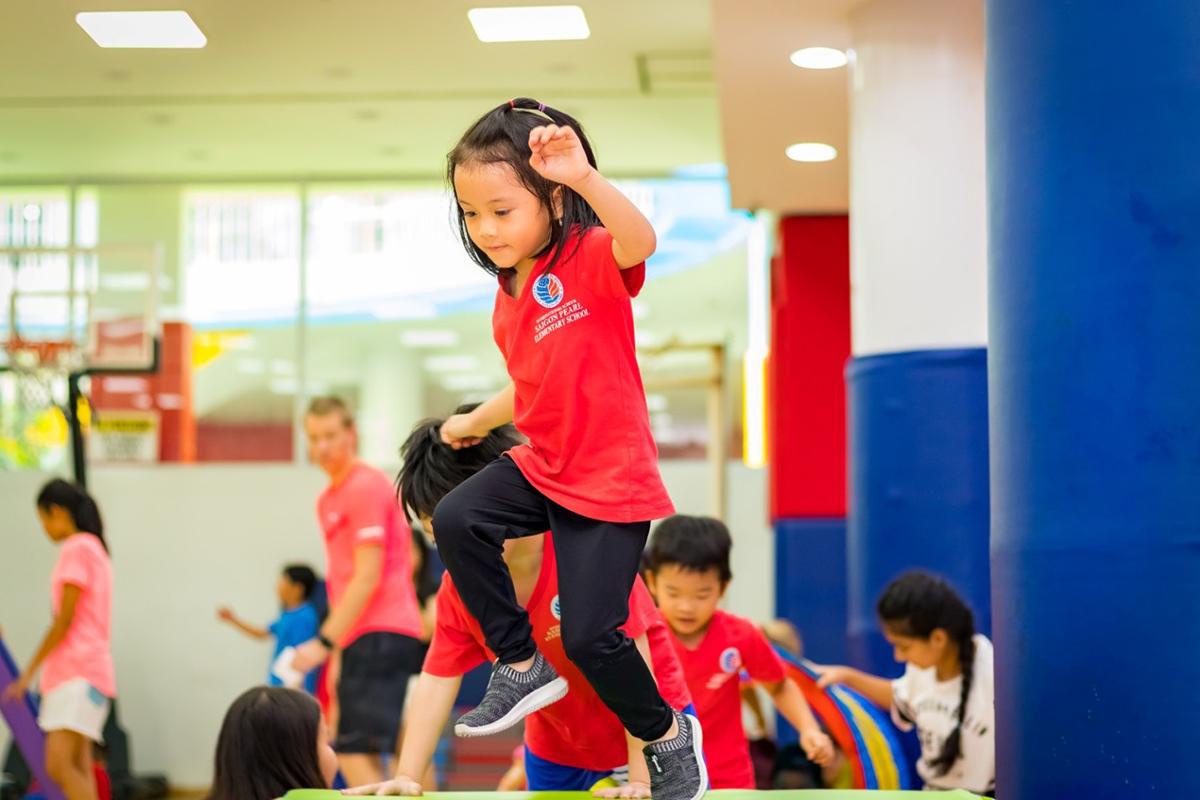
Encouraging a child with praise or rewards when he or she gets it right is a effective method (Source: Internet) Mr. Lester Stephen, Principal of International School Saigon Pearl (ISSP) shared: “In the lessons at ISSP, we always try to integrate knowledge related to the epidemic to exchange with students, thereby listening to and answering their questions. At any age, children need to be provided with accurate information, which is the best way for them to protect themselves against the risks of disease.”
Learning to adapt instead of worrying
Fear and panic are common sentiments of many people. Especially parents with young children who are about to return to school directly while the epidemic is still complicated. However, many experts say that parents should not often express those negative emotions in front of their children, nor should they let children be exposed to too much negative information about the epidemic. This can cause a significant impact on children’s mental health.
It’s important for children to learn about the disease, but they need to experience age-appropriate lessons. Instead of telling children content that causes panic, according to Ms. Kristin, parents can maintain healthy habits with their children such as eating well, having enough nutrients; getting sleep enough; participating in outdoor picnics in a safe area; and regularly exercising to strengthen the body’s resistance. “Physical activity is one of the important learning contents of ISSP students. When students return to school directly, in addition to the school’s scientific epidemic prevention measures, promoting physical exercise in my opinion is also a way to help them reduce the risk of infection in a collective environment,” Kristin explained.
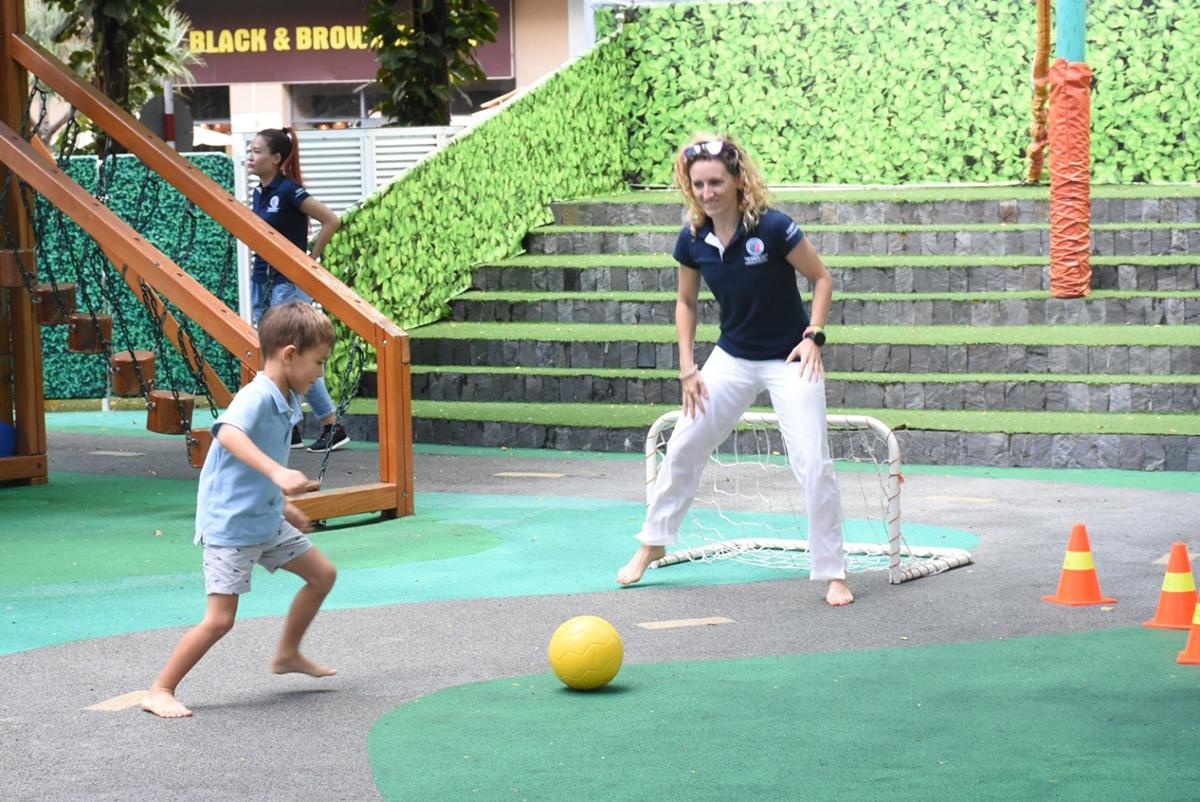
Physical activity helps children reduce the risk of infection in a public environment (Source: Internet) In fact, many studies have also proven that exercise is not only good for the mind and body, but also helps the body strengthen the immune system and prevent many dangerous diseases.
Source: https://www.issp.edu.vn/international-schools-ho-chi-minh-city
thanhnien.vn
ISSP sharing ways to help preschool and primary school children back to school during Covid-19
Currently, the Government is planning to help preschool and primary school children back to school. Besides the epidemic prevention measures from the school, the most important factor in ensuring safety comes from the children’s own consciousness. In this article, ISSP, the high quality and credible international school in Ho Chi Minh City, shares some useful […]
Đã cập nhật 21 tháng 4 năm 2022
Bởi TopOnMedia
Tags:
ISSP Backlink
